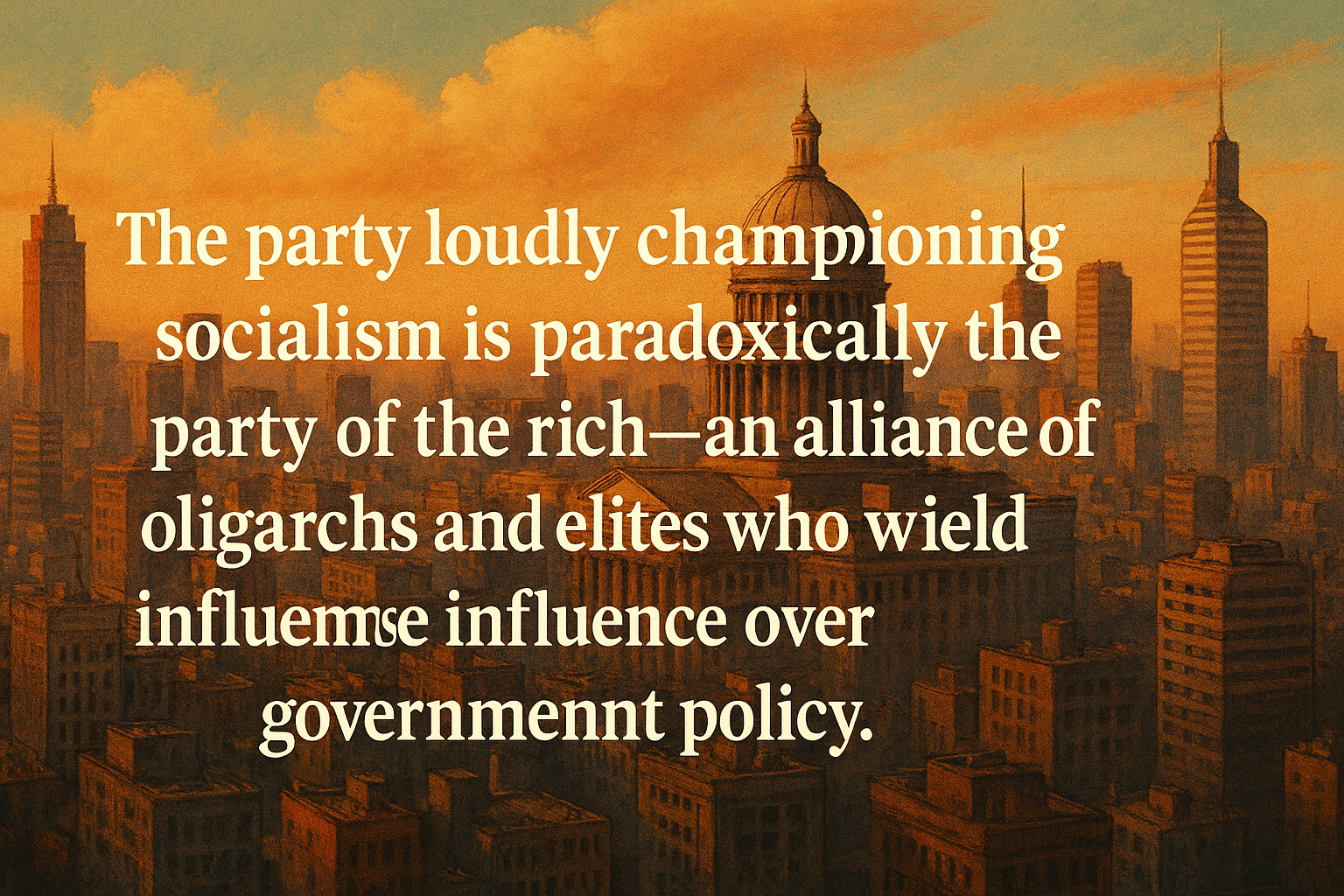Warning to the party at the right.
In today’s political landscape, the party loudly championing socialism is paradoxically the party of the rich—an alliance of oligarchs and elites who wield immense influence over government policy. Far from dismantling privilege, socialism under their stewardship becomes a mechanism for consolidating wealth and power. While rhetoric promises equality and justice, the reality is stark: the rich thrive, their fortunes safeguarded and expanded by state intervention. At the same time, the majority languishes in economic stagnation and diminished opportunity.
Wealth Inequality Under Socialist Regimes
Historical evidence shows that socialist systems often mask deep inequality rather than eliminating it.
For example:
- In the Soviet Union and Eastern Bloc countries, official statistics claimed equality, but significant hidden disparities persisted. Party elites enjoyed privileged access to housing, healthcare, and consumer goods, creating a de facto oligarchy within a “classless” society.
- China’s experience vividly illustrates the paradox: between the 1980s and 2010, the income ratio of the top 1% to the bottom 10% soared from 8:1 to 40:1, even as the country maintained heavy state control. While the poor saw some gains, the wealthy elite multiplied their fortunes exponentially.
- Venezuela’s socialist revolution produced the Boli bourgeoisie, a new ruling class enriched through state contracts and Corruption, while ordinary citizens faced hyperinflation and shortages.
These examples underscore a pattern: socialist regimes often centralize economic power in the hands of a few, creating oligarchic structures under the banner of equality.
Economic Stagnation and Its Human Cost
The promise of prosperity under socialism frequently collapses under the weight of inefficiency and Corruption. Centrally planned economies struggle to coordinate production and distribution, leading to shortages, declining productivity, and systemic dysfunction. By the late 1980s, socialist economies in Eastern Europe faced sluggish capital accumulation and falling labor input, contributing to widespread stagnation. In many cases, these failures triggered political repression and social unrest rather than reform.
This party has perfected the art of manipulation. By courting low-information voters and weaponizing their discontent, they orchestrate riots and revolutions under the guise of moral authority. The narrative is seductive: a crusade for fairness and freedom. Yet beneath the surface lies a cynical calculus—chaos as a tool for control.
Once a movement rooted in progressive ideals, the radical left has abandoned its original values. In their place stands an uncompromising socialist agenda, cloaked in hypocrisy. They proclaim allegiance to democracy, free markets, property rights, and liberty, even as their actions erode these very principles. The contradiction is not accidental; it is pathological, a deliberate masquerade of humanitarianism concealing a lust for dominance.
The methods are ruthless. Property destruction, bloodshed, and even assassinations become acceptable instruments of revolutionary justice, justified by the illusion of virtue.
Meanwhile, the party of the right (essentially, the party of productive people) slumbers, clinging to decorum and “playing by the rules” in a contest where the rules have been rewritten. Their complacency is costly. Until they recognize the reality—that they are engaged in a revolutionary struggle—they will continue to lose ground. Survival demands resolve, strategy, and the courage to fight by the rules of engagement that the opposition has already embraced.
The question is no longer whether a socialist revolution is underway. It is whether those who oppose it will awaken before it is too late. To hell with the conservative establishment. Get your heads out of the sand and get to work doing big boy war against the socialist revolutionaries.
